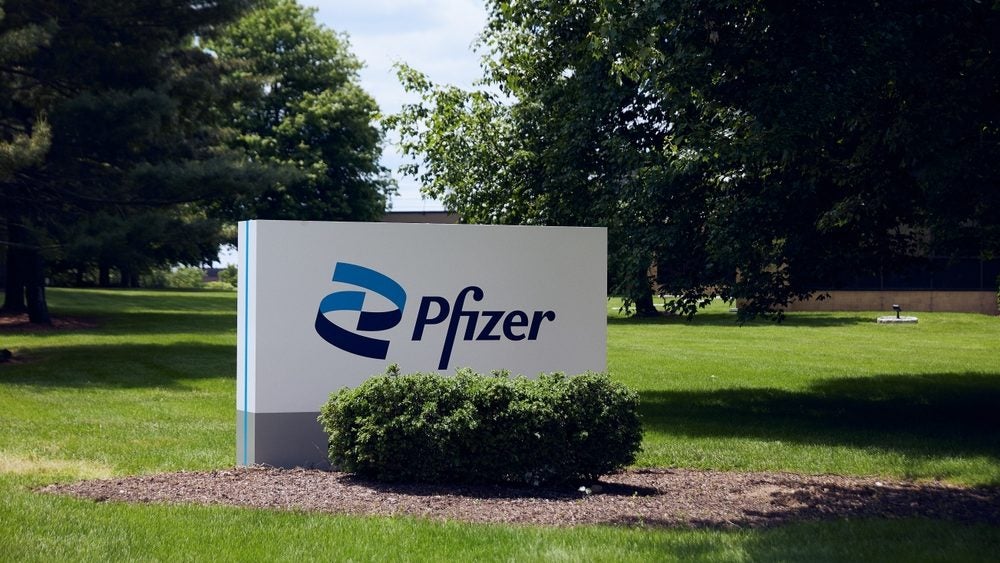Anakinra is under clinical development by Swedish Orphan Biovitrum and currently in Phase II for Community Acquired Pneumonia. According to GlobalData, Phase II drugs for Community Acquired Pneumonia have a 55% phase transition success rate (PTSR) indication benchmark for progressing into Phase III. GlobalData’s report assesses how Anakinra’s drug-specific PTSR and Likelihood of Approval (LoA) scores compare to the indication benchmarks. Buy the report here.
GlobalData tracks drug-specific phase transition and likelihood of approval scores, in addition to indication benchmarks based off 18 years of historical drug development data. Attributes of the drug, company and its clinical trials play a fundamental role in drug-specific PTSR and likelihood of approval.
Anakinra overview
Anakinra (Kineret) is an immunosuppressant produced in Escherichia coli cells by recombinant DNA technology. It is formulated as a solution for subcutaneous route of administration. Kineret is indicated in adults for the treatment of the signs and symptoms of Rheumatoid Arthritis (RA) in combination with methotrexate, with an inadequate response to methotrexate alone, in adults, adolescents, children and infants aged 8 months and older with a body weight of 10 kg or above for the treatment of Cryopyrin-Associated Periodic Syndromes (CAPS), including: Neonatal-Onset Multisystem Inflammatory Disease (NOMID) / Chronic Infantile Neurological, Cutaneous, Articular Syndrome (CINCA), Muckle-Wells Syndrome (MWS), Familial Cold Autoinflammatory Syndrome (FCAS).Kineret is indicated for the treatment of Deficiency of Interleukin-1 Receptor Antagonist (DIRA). Kineret is indicated for the treatment of coronavirus disease (COVID-19) in adult patients with pneumonia requiring supplemental oxygen.
Anakinra is under development for the treatment of sepsis, pancreatic ductal adenocarcinoma (PDAC), chronic lymphocytic leukemia (CLL), cryopyrin-Associated Periodic syndromes, mucopolysaccharidosis III, bladder pain syndrome, autoimmune inner ear disease, acute myocarditis, intracerebral hemorrhage, familial mediterranean fever, cystitis and COVID-19 pneumonia. It is also under development for treatment of hyper-inflammatory syndrome, complications associated with COVID-19 disease and cytokine release syndrome (CRS). It is administered through subcutaneous, intravenous and periarticular routes. It was under development for metastatic adenocarcinoma of the pancreas, mucocutaneous lymph node syndrome (Kawasaki Disease), hidradenitis suppurativa, systemic-onset juvenile idiopathic arthritis (Still Disease) and adult onset Still disease (AOSD), acute gout, hospital acquired pneumonia, community acquired pneumonia and metastatic breast cancer. It is administered through intravenous drip and intravenous bolus route.
It was under development for the treatment of traumatic brain injury and ulcerative colitis.
Swedish Orphan Biovitrum overview
Swedish Orphan Biovitrum (Sobi) is an integrated biopharmaceutical company. It focuses on the development of products for the treatment of a few rare diseases. The company specializes in biotechnology with prime capabilities in protein biochemistry and biologics manufacturing. Its product portfolio focuses on hemophilia, immunology, specialty care, inflammation, and genetic and metabolic diseases. The company also provides innovative treatment for conditions such as amyotrophic lateral sclerosis (ALS). Sobi also manufactures and markets specialty products for rare diseases for partner companies. The company has operational presence in Europe, the Middle East, North America, Russia, and Asia. Sobi is headquartered in Stockholm, Sweden.
For a complete picture of Anakinra’s drug-specific PTSR and LoA scores, buy the report here.
Premium Insights
From

The gold standard of business intelligence.
Blending expert knowledge with cutting-edge technology, GlobalData’s unrivalled proprietary data will enable you to decode what’s happening in your market. You can make better informed decisions and gain a future-proof advantage over your competitors.







